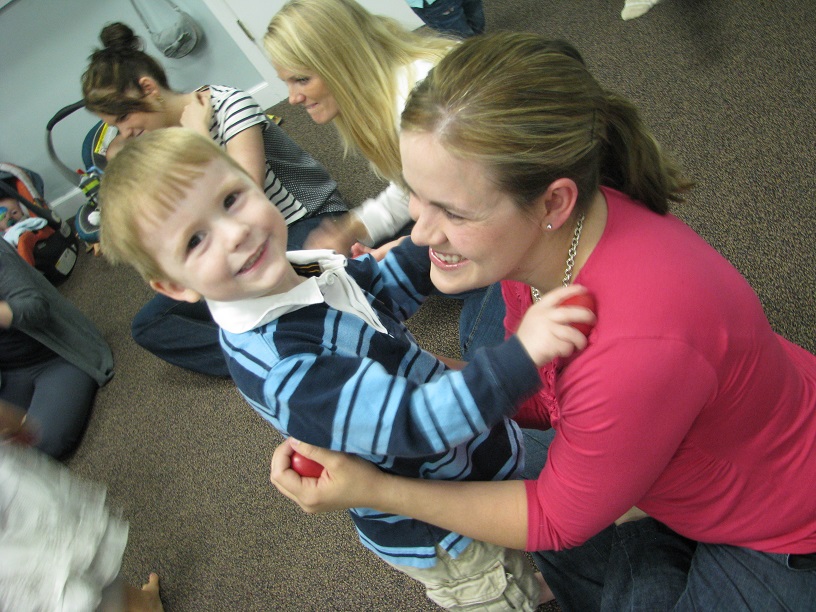 One of the often overlooked benefits of early music education and particularly a program like Kindermusik is that the music experience itself – both in class and at home – actually promotes healthy social-emotional development, a vital part of early childhood development. A class like Kindermusik gives families a place to just be together, and that together time with music becomes the basis for the kinds of things that contribute to happy, healthy, confident children.
One of the often overlooked benefits of early music education and particularly a program like Kindermusik is that the music experience itself – both in class and at home – actually promotes healthy social-emotional development, a vital part of early childhood development. A class like Kindermusik gives families a place to just be together, and that together time with music becomes the basis for the kinds of things that contribute to happy, healthy, confident children.
The early years
In the early years, strong emotional ties are fostered as mom or dad cuddle, sway, or bounce their little one while humming a lullaby, rocking to a favorite song, or dancing around the room. Loving intentional touch during massage time releases those “feel-good” hormones in the brain responsible for feelings of safety and security. And a Kindermusik-inspired lullaby ritual before naptime or bedtime becomes a cherished time that strengthens the loving bonds between parent and child.
The toddler years
Later on, the time spent enjoying music together becomes a way to spend quality time, to enter into the child’s world through imagination and play, and to express through music sometimes what words cannot. It’s during these sometimes turbulent years of toddler-hood that children most need those special reassurances of their parents’ love, interest, and care.
The preschool years
As a child moves into the preschool and early school years, the security of the emotional bond with a parent paves the way for developing healthy relationships with peers and teachers. A child is ready and able to expand on the social skills that were first developed in the early years, skills that lead to confident and happy interactions with others.
Nothing more powerful than music
When it comes to your child’s social-emotional development from newborn to 7 years, there’s nothing more that will impact him more than experiencing the benefits of music, and no better choice for delivering those benefits than Kindermusik.
Try a free Kindermusik class today and see how Kindermusik can make all the difference for your child!
– Contributed by Theresa Case whose Kindermusik program at Piano Central Studios is proudly among the top 1% in the world.





